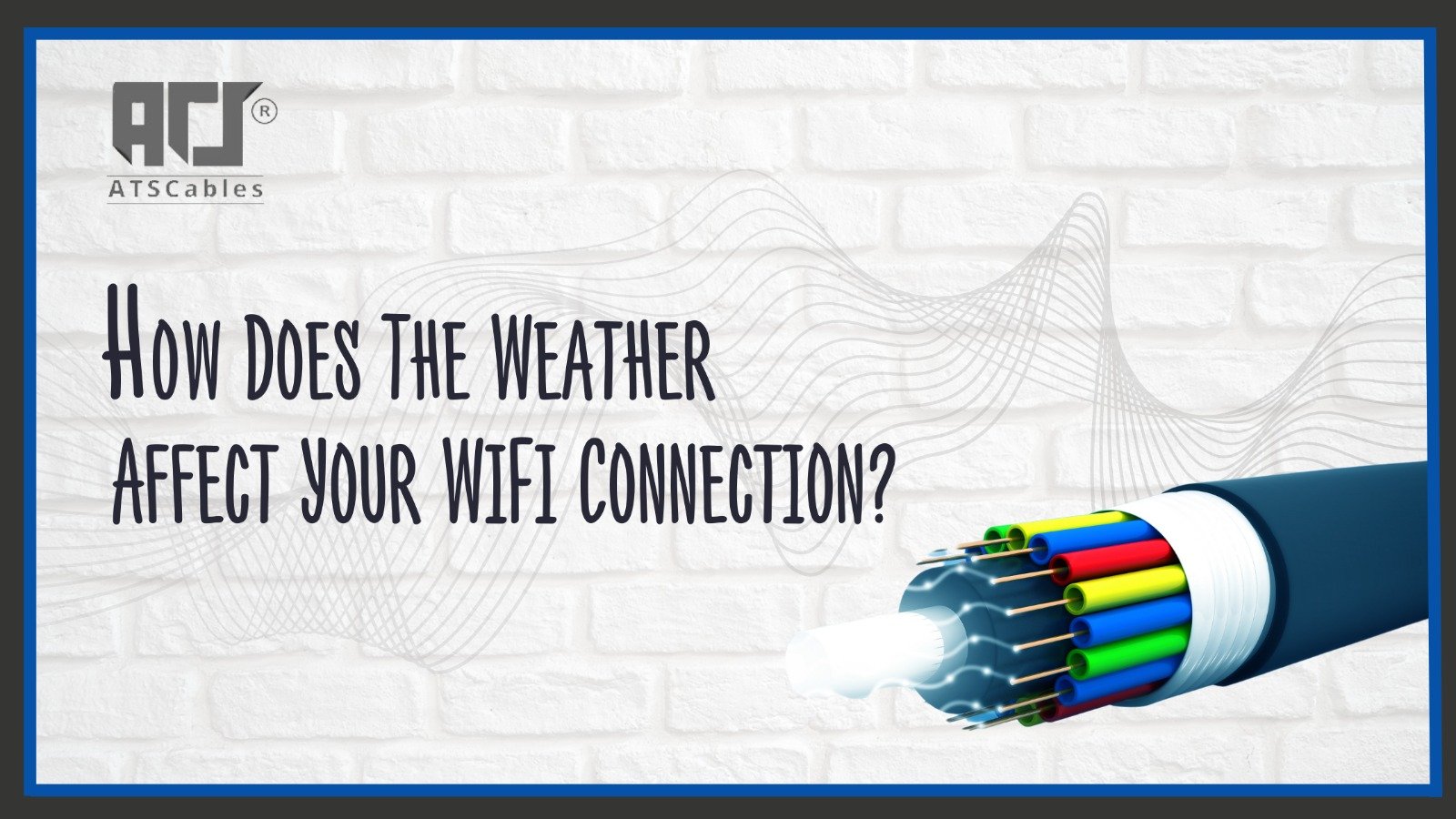
Impact of Weather on Your Wi-Fi Connection: Here is What You Need to Know
A Wi-Fi connection becomes a problem whenever it stops functioning properly. During a normal show streaming experience, you become suddenly trapped between buffers after just one moment. Most people have questioned whether weather conditions affect Wi-Fi network performance.
Numerous network users report slower connection speeds and dropped signals, together with weak signal quality, when they face strong winds followed by storms and heat waves.
But what’s really going on? Does the internet connection experience weather-related issues, or are there alternative explanations for the disruptions? We need to analyze the situation step-by-step to understand the frustrating cause of this problem.
Weather Conditions and Their Different Effects on Wi-Fi Signals
The morning weather check is only one part of weather-induced internet interference. Multiple environmental factors generate different effects on your internet connection.
Rain, Snow, and Humidity
When it rains, snows, or even gets muggy, your connection might slow down. Some common situations where your Wi-Fi can be affected include:
- Heavy rainfall can scatter radio waves, weakening signal strength.
- Wet, heavy snow can disrupt satellite and fixed wireless connections.
Keep in mind that fiber-optic cables aren’t affected by moisture. However, the equipment delivering the signal can be. If your service provider relies on wireless signals, rain can cause interference.
Wind and Storms
Strong winds don’t directly interfere with Wi-Fi signals, but they cause other issues. Wind alone won’t slow your signal, but it can knock down power lines and cell towers. Furthermore, you need to keep the following things in mind:
- If your router loses power or your ISP’s infrastructure takes a hit, expect slow or no internet.
- Thunderstorms can damage network equipment, causing widespread outages.
- Wireless connections, especially fixed wireless, may struggle in gusty conditions.
- Sandstorms can coat and clog network equipment, causing signal loss.
Cold Weather and Freezing Temperatures
Cold weather messes with more than just your car battery. It can affect your internet, too. You might wonder, “Does cold weather affect Wi-Fi?” Not directly, but ice buildup on cables and towers can degrade signals. People living in cold areas should know the following things:
- If your ISP’s infrastructure isn’t winter-ready, freezing temperatures can cause disruptions.
- Outdoor equipment, like satellite dishes, can freeze or malfunction.
- Fiber-optic cables are resistant to the cold, but freezing temperatures can affect supporting hardware.
- If network equipment slows down, your speed might drop.
How to Improve Wi-Fi During Bad Weather
You don’t have to sit around waiting for the weather to clear up. Try these fixes to keep your internet stable.
Router and Equipment Placement
Where your router sits makes a big difference in how well it performs. Here are a few tips to help you out:
- Keep your router in a cool, well-ventilated area to prevent overheating.
- Move your router away from windows to avoid interference from rain and strong winds.
- Elevate the router for better signal reach.
Switch to a Wired Connection
If bad weather affects your Wi-Fi, a wired connection can help. To deal with this issue, you can try out the following things:
- Use an Ethernet cable for stable speeds during storms.
- Fiber-optic connections are less affected by weather conditions than wireless ones.
- Satellite internet users should clear snow or debris off their dishes.
Upgrade Your Plan or Equipment
Sometimes, the best solution is upgrading to better hardware or a stronger internet plan. There is no rocket science that goes into it, and you just need to do the following things:
- Consider a mesh Wi-Fi system if your home has weak signal spots.
- If intermittent weather is common in your area, switching to fiber can help.
- A high-gain external antenna can improve fixed wireless connections.
Common Myths About Wi-Fi and Weather
Some weather-related Wi-Fi issues aren’t what they seem. Let’s bust some myths.
- Does cold weather make Wi-Fi slow? Cold itself doesn’t slow Wi-Fi, but ice on infrastructure can.
- Can bad weather affect Wi-Fi? Yes, but not in the way people assume. It’s more about signal interference and power disruptions.
- Does rain stop Wi-Fi? No, but heavy rain can weaken signals, making them unreliable.
- Does weather affect internet speed? It can, especially for satellite and fixed wireless connections.
- Can snow affect Wi-Fi? Yes, but mainly by interfering with satellite dishes or network infrastructure.
Conclusion
Unique weather elements, including rain alongside wind and heat, can negatively affect internet performance by causing connection delays, interruptions, and complete disruptions. The good news? You’re not powerless.
New positions for your router, in addition to equipment updates and the use of Ethernet, will improve your connectivity. Your unreliable Wi-Fi requires a better connection, which you can get from ATS Cables to improve internet stability.
FAQs
Can cold weather affect the internet connection?
Network infrastructure and equipment receive slowdowns from extreme cold weather that lead to temporary outages, but cold temperatures do not affect Wi-Fi signal transmission.
Can rain affect Wi-Fi performance?
Heavy rainfall produces two main issues for satellite and fixed wireless internet clients because it actually reduces both signal strength and absorbs radio frequency wavelengths.
Does wind affect cell service and Wi-Fi?
Although wind interacts with infrastructure and power lines, it does not accidentally disrupt signals until destruction prompts service interruptions or speed reductions.
Can bad weather affect Wi-Fi?
Storms, along with rain and excessive heat, cause the most interference. Start with router restart followed by an examination of ISP service availability if weather conditions are not responsible for the outage.
Does cold weather affect fiber internet?
The infrastructure that maintains fiber-optic cables is vulnerable to extreme cold weather conditions, which can result in temporary interruptions of service.
keep connected
Get updates by subscribe our weekly newsletter

